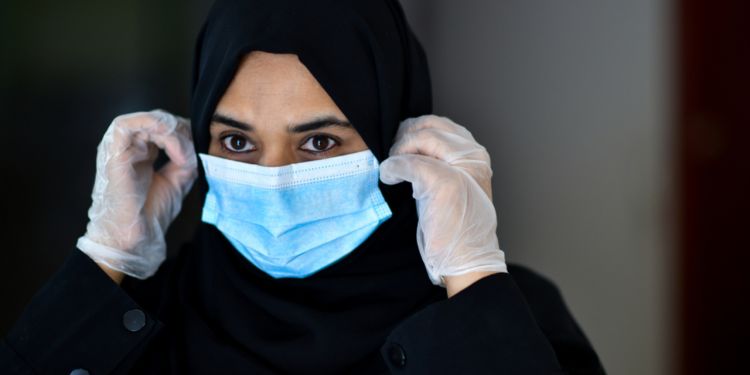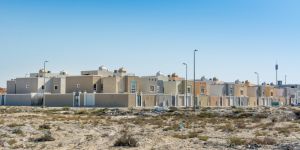
With a fragile economy coupled with the expat exodus, Saudi Arabia took drastic measures to contain the COVID-19 crisis. Crowd control rules were very strict, and sanitary rules were enforced. The period accelerated the country's digitization program while citizens and residents alike quickly adapted to showing verifications in various apps. If you are planning to settle in Saudi Arabia today, now that the border restrictions are lifted, learn about what has changed in terms of visas, employment, housing, cost of living and, lifestyle, etc.
What are the current regulations for entering Saudi Arabia?
Saudi Arabia, like most countries, has now lifted the strict health regulations that were imposed during the pandemic. If you are going to Saudi Arabia for work, you will need to undergo a medical test as part of your visa application process. However, there is no COVID-related part and, as of 2024, you can enter Saudi Arabia whether you are vaccinated or not.
Have there been visa changes in Saudi Arabia recently?
Saudi Arabia is issuing any type of visa and all restrictions put in place during the pandemic have been lifted.
Is it easy to find work in Saudi Arabia currently?
In 2020, Middle East countries faced an expat exodus, and Saudi Arabia was not spared. It is estimated that around 1.2 million foreign workers left the country. With a deficit of 9 billion dollars in 2020, the government was eager to see the economy flourish again and it is estimated that by 2022, the expat population had exceeded pre-COVID numbers. In this light, there have been efforts, such as business incentives, to attract foreign investments. As expected, this is competing along with the Saudization program and so the long-term effects of the COVID crisis can be very different from one sector to another. So, while it may not be as easy to find a job in Saudi Arabia as it was before the pandemic, or before Saudization, there is still a strong economic drive that requires and makes it attractive for expats to work in the country.
How did the Saudi healthcare system perform in light of the crisis?
The Saudi government was quick to implement strategies to contain the COVID-19 pandemic. The Ministry of Health designated 25 hospitals with a total of 80,000 beds, including 2,200 for suspected cases of COVID-19 and quarantine. Some 8,000 beds were also dedicated to intensive care. Also, entry points were being controlled, and screening tests were being carried out on suspected cases. Confirmed cases were immediately quarantined. Besides, awareness and education campaigns were launched on various platforms. The Saudi Ministry of Health relied heavily on technology to provide adequate care to the population, with mobile apps such as the Tawakkalna app, telemedicine, online medical consultations, and virtual clinics. Medication was easily delivered at your doorstep! All public and private hospitals in Saudi Arabia were providing free COVID-19-related care for all, including residents and visitors. Overall, it must be said that the crisis management and the Saudi healthcare outperformed that of most European, Asian and American countries, where mortality rates were higher. This strong performance has been attributed to a greater public compliance in Saudi compared to other countries.
Has anything changed regarding universities and schools in Saudi Arabia?
Schools switched to distance learning during the pandemic. Online learning took place for over a year and physical classes only started back on 29 August, 2021. This was still coupled with social distancing, mask mandates, and vaccination requirements. It is estimated that, throughout the pandemic, approximately 6 million students took 120 million online exams. This rapid change left indelible traces in the education system that has now implemented online classes for multiple disciplines in higher education in Saudi Arabia. For example, at the university level, multiple classes are now online with students meeting in the classroom only for mid-terms and final exams.
How is the real estate market following the crisis?
The COVID-19 crisis had a considerable impact on the Saudi real estate market and caused a strong slowdown. However, the market has since rebounded and rental prices have seen a clear inflation. According to Knight Frank's residential market review of summer 2024, the Saudi real estate market shows that villa prices have increased by 2.3% on average, while apartment prices have risen by 3.1%. For instance, in Riyadh, the average price of a two-bedroom apartment is around 600,000 riyals, and in Jeddah, it is approximately 1.3 million riyals. Three-bedroom villas in Jeddah now average around 2.7 million riyals, while in Riyadh, the price is about 3.0 million riyals. Rent prices have stabilized with some slight variations.
Has the cost of living changed since the crisis in Saudi Arabia?
Saudi Arabia is very likely to become one of the world's most expensive destinations for expats. In the midst of the first year of the pandemic, on July 1, 2020, value-added tax went from 5% to 15%! This rise also applies to essential goods, and therefore significantly increased the cost of living. According to the Saudi government, the measure is aimed at mitigating the impact of the COVID-19 crisis on its economy. With tourism and foreign investment on the rise, the cost of living has also increased, especially in the capital. Rental and transportation costs are the most important changes compared to the previous years, with rents seeing an increase of at least 15% in the last five years. In major cities like Riyadh, the increase can be even sharper. For example, the cost of a two-bedroom apartment was, on average, SAR 30,000 before the pandemic, while it would be SAR 40,000 on average in 2024.
How about the lifestyle in Saudi Arabia? Have there been major changes in habits following the sanitary crisis?
Since the end of the lockdown in Saudi Arabia, businesses, offices, and mosques have reopened. As of 2024, it is fair to say that life in Saudi Arabia does not experience any restrictions or social distancing. Events, such as concerts and conferences, bigger than ever, are now taking place without any extra sanitary measures necessary. Masks are still worn for sanitary reasons in the food and cleaning industry and healthcare systems, as well as by some women as a covering alternative.
Useful links:
We do our best to provide accurate and up to date information. However, if you have noticed any inaccuracies in this article, please let us know in the comments section below.











